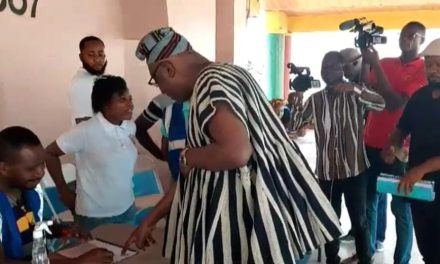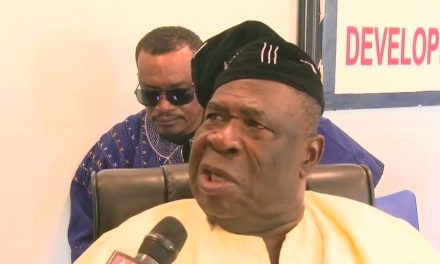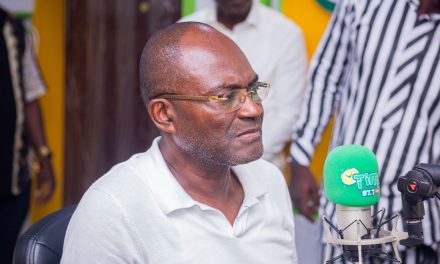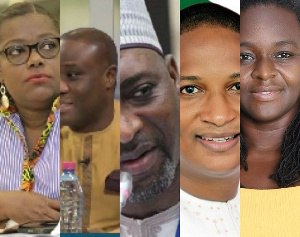
NPP Not Tribalistic – Bawumia3 min read
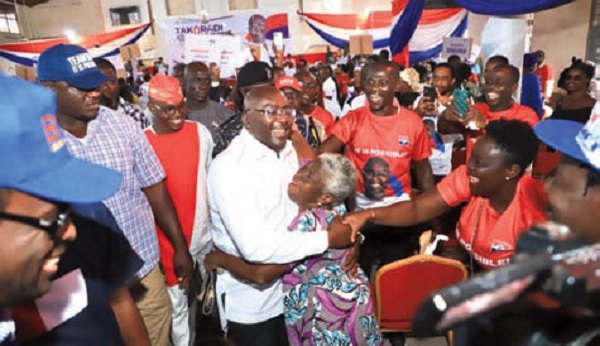

According to him, looking back at the NPP’s history, the party has been maligned and portrayed by its opponents as voting along tribal lines, adding that this is not true.
He, therefore, asked the party delegates to discard the notion that the party is tribalistic and vote overwhelmingly for him to ‘break the eight’ for the NPP in the 2024 general election.
Addressing delegates in Tumu, in the Sissala East District of the Upper West Region, Dr. Bawumia said he is the only person the opposition National Democratic Congress (NDC) is afraid to see on the presidential ballot.
He said he was the third person from the North to run the NPP presidential primary, noting that he has received massive support across all 16 regions of the country.
“Everyone is supporting Dr. Bawumia because I have what it takes to win the 2024 elections,” he said.
The Vice President asserted that the NPP was attempting to do something that had never been done before, noting, “We are breaking the eight.”
He stated that when the party opened nominations, he picked a form to run for the flagbearership position in order to help the NPP break the eight-year political power cycle between the NPP and the NDC.
Dr. Bawumia believes his win in all 16 regions in the Super Delegates Congress ought to be repeated at the November 4 congress.
“On November 4, 2023, we shall send a signal to show them we are not a tribalistic party; we will send a message that we are a national party,” Dr. Bawumia declared.
He led the delegates through the NPP’s history, claiming that everything pointed to the NPP being a nationalistic party.
“History tells us that the party doesn’t engage in tribal politics when we are electing leaders, as we are made up of different political groupings from different parts of the country.
“The National Liberation Movement from Ashanti, the Northern Peoples Party from the North, the Anlo Youth Congress, the Ga People, and the Muslim Association Party came together to form the United Party, which is now the NPP and that’s our antecedents,” he explained.
The Vice President narrated that the Northern Peoples Party got 12 seats in the 1954 elections, whereas Busia’s party received only one.
This, he added, made the Northern People’s Party the largest opposition group, but it relinquished leadership to Professor Kofi Abrefa Busia, who became opposition leader, and “it tells you one thing that the Northern People’s Party was not choosing leadership on tribal lines.”
He stated that in recent history, Alhaji Malik Alhassan Yakubu, a Northern candidate, faced off against former President John A. Kufuor in the NPP. However, the people in the North chose to support Kufuor because the party preferred the man who could win elections.
“That showed that the North did not vote for Alhaji Malik Alhassan Yakubu, and that showed the North was not tribalistic,” he stressed.
He stated that former Vice President Alhaji Aliu Mahama also ran for the NPP flagbearership against current President Akufo-Addo, but the people of the North voted for Nana Akufo-Addo, intimating that this is another classic case of nationalism.
He stated that the people of Ashanti, like the Northerners, supported Adu Boahen of the Eastern Region over former President Kufuor of the Ashanti Region.
Vice President Bawumia said he was the most experienced candidate because he had been a running mate four times and had been well-marketed.
“I know the crowd and the ground. The party has marketed me across the country and I know how to beat my opponent,” he told the delegates.
Dr. Bawumia promised to nominate 10 people from each constituency and 20 people from each region to help solve the problem of disagreement between the government and the party.
He stated that he would make the appointed persons, particularly those in state institutions, godfathers and godmothers of the constituency, while also creating a database of the party members’ demands.





